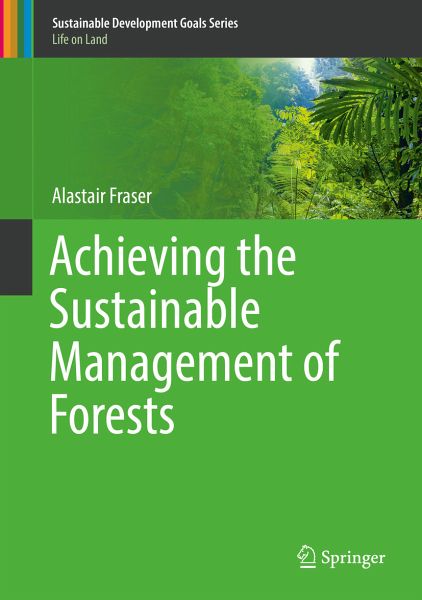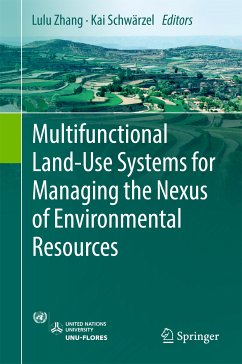
Achieving the Sustainable Management of Forests (eBook, PDF)
Versandkostenfrei!
Sofort per Download lieferbar
112,95 €
inkl. MwSt.
Weitere Ausgaben:

PAYBACK Punkte
56 °P sammeln!
This book discusses the reality of implementing sustainable forest management measures. Rather than simply offering theoretical descriptions, the book comprehensively details how sustainably managed forests can only be achieved through the cooperation and support of foresters, politicians, business leaders, local communities, consumers of forest-based goods and services, and the general public. The book also aims to raise public awareness of the factors involved in attaining the true sustainability of forest management, and the consequences of failing to do so, as well as the current issues fa...
This book discusses the reality of implementing sustainable forest management measures. Rather than simply offering theoretical descriptions, the book comprehensively details how sustainably managed forests can only be achieved through the cooperation and support of foresters, politicians, business leaders, local communities, consumers of forest-based goods and services, and the general public. The book also aims to raise public awareness of the factors involved in attaining the true sustainability of forest management, and the consequences of failing to do so, as well as the current issues facing sustainable forest management such as land ownership and land-use rights, political corruption, environmental stressors, and economic pressure. In 17 chapters, the book will appeal to academics and teachers in forestry and related areas, government practitioners, development agencies, and NGOs.
Dieser Download kann aus rechtlichen Gründen nur mit Rechnungsadresse in A, B, BG, CY, CZ, D, DK, EW, E, FIN, F, GR, HR, H, IRL, I, LT, L, LR, M, NL, PL, P, R, S, SLO, SK ausgeliefert werden.












